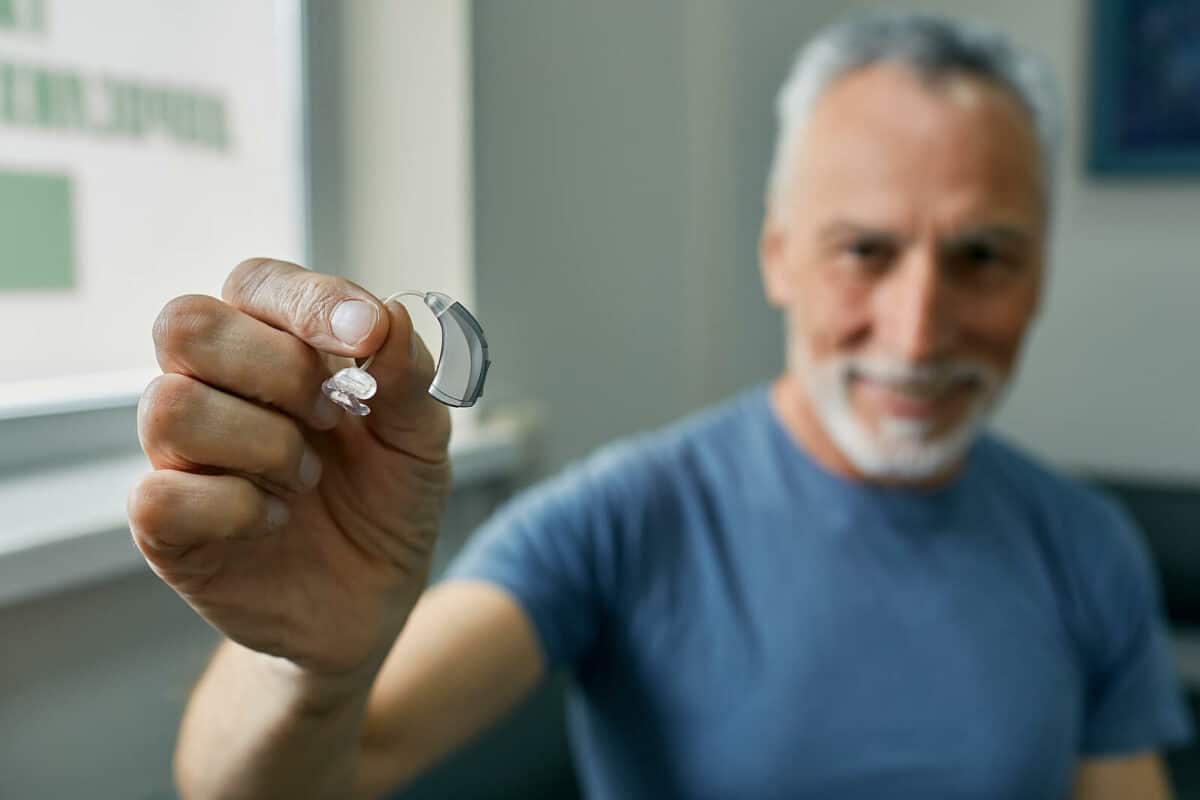A frequently asked question about hearing aids is when they should be updated. Hearing aids are essential devices for people with hearing loss. These electronic devices help absorb and process speech as well as sound, providing ample support in everyday environments. It is important to know when you should update your hearing aids so that your hearing needs are always being met optimally. To know when you should opt for a new pair of hearing aids, it is useful to ask yourself the following questions:
Has your hearing changed?
Hearing needs can change over time. Hearing loss exists on a spectrum, from mild to profound, and where your hearing lies on this spectrum can move. This is why it is important for people with hearing loss to have their hearing evaluated regularly. Hearing tests allow you to track your hearing health and identify any changes you may experience over time. If your hearing needs do in fact change, you may need different hearing aids to best meet your new hearing needs. The hearing aids you wear are specific to your hearing needs – type of hearing loss, degree of impairment, the types of sounds and speech you have a harder time hearing etc. So if these factors change, there may be a device that can better address these needs.
Are major lifestyle factors different?
Another important factor to assess is lifestyle considerations. In addition to your hearing needs, lifestyle factors are also used to decide which hearing aid would work best for you. This includes factors like your work life, what your social engagement looks like, any hobbies or activities you engage in regularly etc. These factors are important because they highlight the types of environments that you navigate on a daily basis. This informs what your hearing aids need to be able to do in these contexts to make sure your hearing needs are met. For example, if you work in a noisy environment, your hearing aids need to be able to adjust to this in ways that reduce background noise while also still delivering sharp sound quality. If any of these factors change, then your hearing aids may need to be updated. So it is important to consult with your hearing healthcare provider if there are changes to your lifestyle.
Are you experiencing any issues with your hearing aids?
You will become an expert when it comes to your hearing aids and how they should work as well as what sound should sound like. So if you start experiencing issues with your hearing aids, or they don’t seem to be working as well, you will likely be able to tell. A few indications that your hearing aids are malfunctioning or need to be looked at include:
- You experience feedback issues, uncomfortable whistling noises
- Your hearing aids are randomly powering off
- Sounds and speech seem muffled or unclear
- You notice physical damage on your device (breakage, cracks etc.)
These signs indicate that your hearing aid needs to be inspected by a hearing aid specialist. Your hearing healthcare provider is able to run performance tests and thoroughly inspect your device to identify the underlying issue. They may need some repair work or it may be time for them to be replaced.
Are you interested in upgrading?
Today’s hearing aids are more innovative than ever before. There is a range of features and technologies that they offer which make hearing seamless in all environments. This includes features like digital noise reduction, voice recognition, wireless connectivity, tinnitus management and more. If you are interested in exploring these technologies and features, this may be another indication that you are ready to upgrade your hearing aids. Be sure to discuss these features with your hearing healthcare provider who can help you navigate your options and identify the technologies that are optimal for you.
In addition to these questions, another important factor to consider is how long you’ve had your hearing aids. People typically invest in a new device after 5 years so if you are reaching this point, it may be time to explore your hearing aid options. Be sure to ask your hearing healthcare provider about the lifespan of your specific device which can help you know when you should upgrade your hearing aid.

